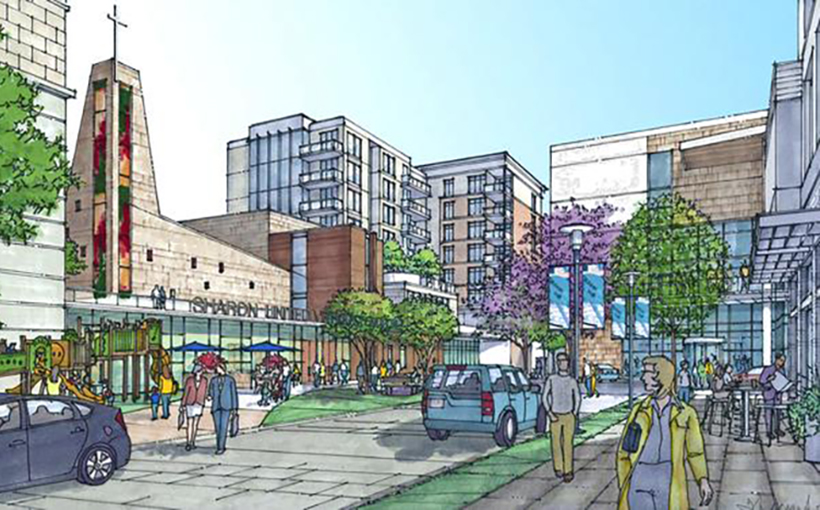The redevelopment of Sharon United Methodist Church by Childress Klein is pictured above. In many cities, the closure of large places of worship such as churches, synagogues and mosques can be a challenge for urban areas, especially those located near central business districts. A recent article on the Urban Land website highlighted this issue and noted that it is similar to the struggle with major department store closures.
While there are more houses of worship than department stores in most cities, converting or reusing religious buildings can be difficult due to their unique architecture. Additionally, these closures can have an emotional impact on communities when a beloved landmark sanctuary shuts down or is repurposed.
To address this issue, the “Yes in God’s Back Yard” (YIGBY) movement has emerged with specific strategies that could help alleviate some challenges faced by religious building owners:
1. Sell and relocate: Some religious organizations have successfully sold their properties and used the proceeds to purchase new locations elsewhere. For example, First Church Miami UMC sold its downtown location for development but reinvested in 25
“}]]


